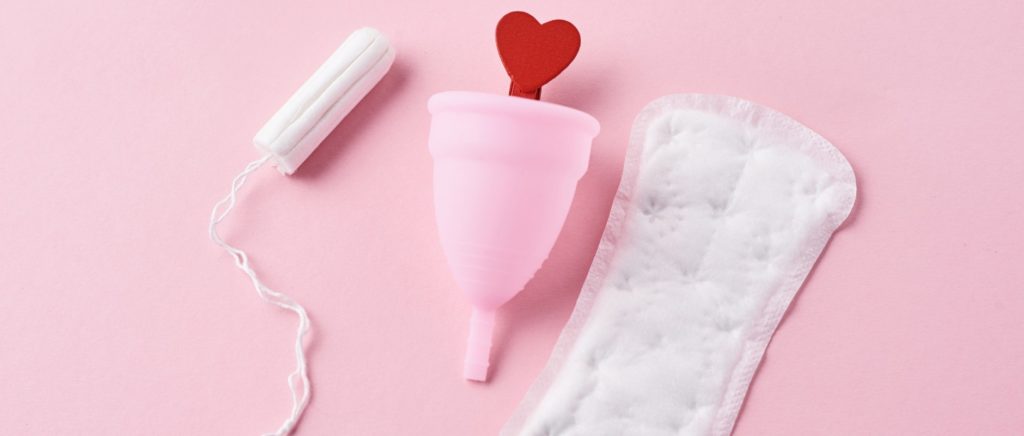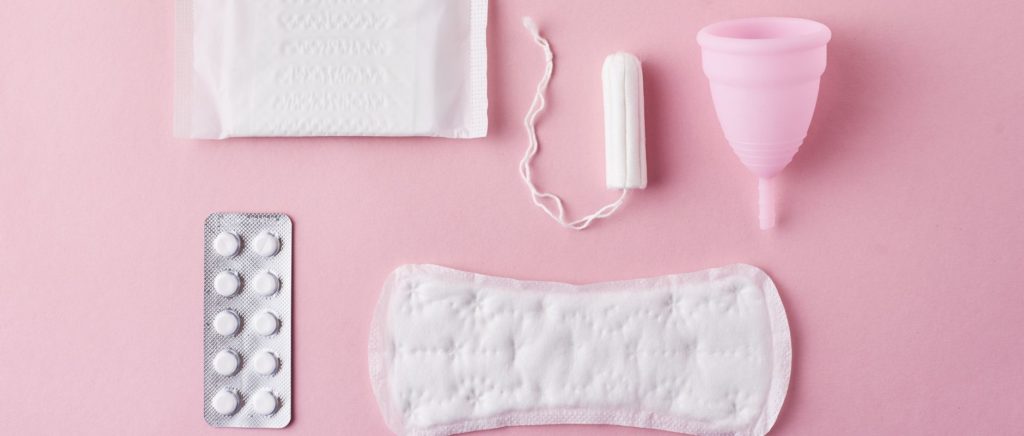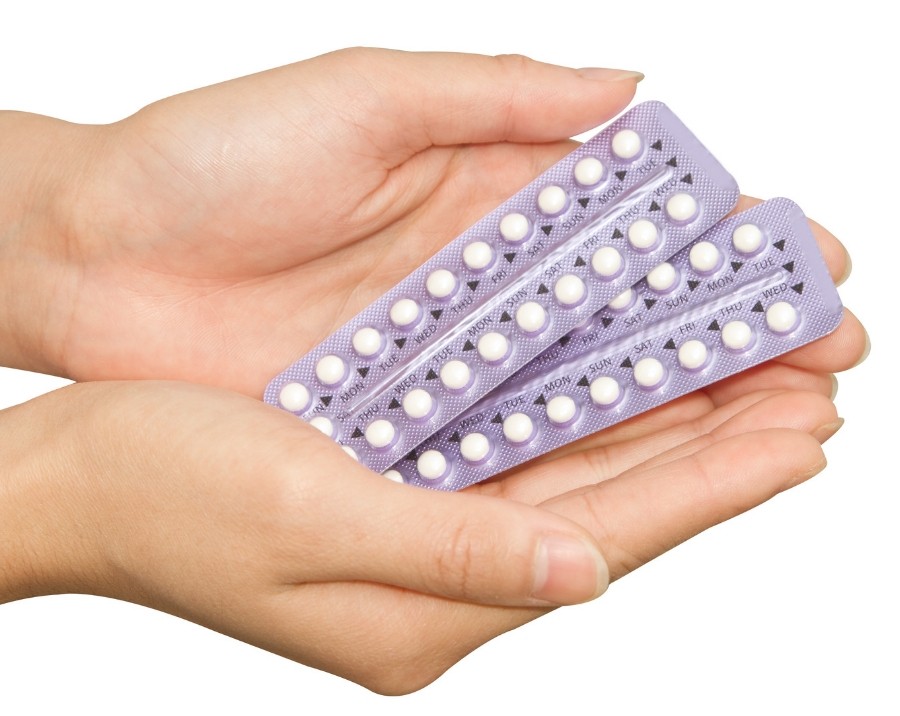“Aside from the monthly reassurance that you’re not knocked up, getting your periods sucks. The hassle of carrying tampons, enduring painful cramps, and dealing with hormonal acne is enough to make any reasonable woman ask – can we not?” – Here’s How To Stop Your Period From Coming
This is an excerpt from an article entitled “Here’s How to Stop Your Period From Coming” that was recently published in a popular women’s magazine. The article goes on to explain how women can use birth control pills or other hormonal contraceptives such as IUDs, the shot, the patch and vaginal rings to stop their periods. The author stresses that the use of hormonal contraceptives to prevent menstruation is safe and can be done indefinitely without any consequence. Although there are some studies that support this argument, it begs the question – SHOULD we be stopping our periods by shutting down a natural process of the body?
In my opinion, by promoting hormonal contraceptives as a means to shut down menstruation simply to avoid the hassle of a period can lead to such a disconnect with the body. It vilifies a very natural process. Hormonal contraceptives can lead to difficulties conceiving down the road, lead to nutrient deficiencies, lower one’s libido, and may greatly affect one’s mental health. In fact, there is anecdotal & scientific evidence to suggest that women taking hormonal contraceptives may experience higher rates of depression than those who don’t.
Hormonal contraceptives do have their time & place. As does suppressing menstruation – such as in the case of severe anemia or hemophilia. I truly believe that everyone should have access to them [for free!] if they decide that using them is in their best interest – no matter what the reason! Everyone has a right to make decisions about their bodies without judgement. However, I also believe that we all need to be empowered with the right information, so that we can make educated decisions about our reproductive health. Knowledge is power my friends!
So, what do you need to know about using hormonal contraceptives to suppress your periods?

Hormonal Contraceptives Shuts Down Ovulation
In order for hormonal contraceptives such as the birth control pill to prevent pregnancy, communication between the brain and the ovaries is suppressed and reproductive hormones are inhibited. This prevents the body from ovulating. Ovulation is needed for the production of progesterone – a reproductive hormone that is critical not only for sustaining a pregnancy, but also for calming the nervous system, aiding in thyroid hormone action, protecting breast tissue, normalizing blood sugar levels, balancing moods & building bone. Progesterone is also needed to naturally oppose estrogen, so that our bodies do not become estrogen dominant leading to the many signs & symptoms of Premenstrual Syndrome (PMS). By suppressing our periods through the use of hormonal contraceptives, we shut down ovulation and deny our bodies the benefits of ovulation and natural progesterone production.
Hormonal Contraceptives Can Disconnect Us From Our Bodies
I admit that I used The Pill to skip a period or two in my 20s. Vacation? Period skipped. University Exam Week? Period skipped. Hot Date? Period skipped. Although my doctor was adamant that it was safe (even healthy) to skip a period, deep down I knew that it was wrong to shut down my body’s natural processes. Suppressing ovulation and consequently bleeding disconnected me from my body. Being on hormonal contraceptives for many years prevented me from getting to know my body’s normal fluctuations – it’s natural ebb & flow (pun intended). It wasn’t until I stopped taking The Pill in my early 30s that I knew what a natural cycle and natural period felt like.
Most hormonal contraceptives provide the body with a consistent supply of synthetic estrogen to prevent ovulation. Synthetic estrogen acts differently in the body than the estrogen we make ourselves. Estrogen levels remain high throughout the majority of the cycle or until we begin the placebo week. We then begin to experience what’s called a withdrawal bleed which is the body’s reaction to a significant drop in reproductive hormones. This is not an actual period, as many of us have been led to believe.

A natural menstrual cycle is now considered to be the fifth vital sign for women – alongside heart rate, blood pressure, breath rate and body temperature. It is a primary indicator of overall health & wellbeing. Hormonal contraceptives alter this natural state and may suppress symptoms that point to an imbalance in the body. The menstrual cycle is very sensitive to stress & changes in diet and lifestyle. Using hormonal contraceptives to skip a period is akin to shutting down one of the body’s main communication systems. It increases the disconnect one has with their body.
Using hormonal contraceptives may reduce or eliminate unpleasant symptoms of the menstrual cycle, but it is only temporary. For most menstruators, symptoms will return once hormonal contraceptives are stopped. Disease could be setting in in the background as was my case. While taking hormonal birth control pills, my obvious symptoms of PCOS diminished, but I was developing metabolic syndrome – a precursor to Type II Diabetes – behind the scenes. In taking hormonal contraceptives and suppressing the body’s natural processes, we do not get to the root cause of the symptoms themselves. The body speaks in symptoms. If we don’t listen to what the body is saying, it will often speak louder and more often until we can’t ignore it anymore.
It is critically important that if you are experiencing negative symptoms such as painful cramping, migraines, bloating, heavy bleeding etc, that you seek out the help of a trained processional.
Hormonal Contraceptives Don’t Address Root Causes
Most women on hormonal contraceptives are not taking them for their intended purpose – pregnancy prevention. Many menstruators are using them to skip periods or manage symptoms such as heavy bleeding, missed periods, irregular periods, acne, hormonal headaches or painful cramps. Some use hormonal contraceptives to deal with reproductive disorders such as endometriosis, fibroids – and as in my case – Polycystic Ovary Syndrome (PCOS). However, a hormonally balanced menstrual cycle should not be painful or riddled with symptoms of PMS. Symptoms are the sign that something is out of balance in the body. Using hormonal contraceptives to stop or skip periods can unduly mask issues that need to be paid attention to.

Hormonal Contraceptives Can Cause Nutrient Deficiencies
Hormonal contraceptives have been shown to deplete the body of certain nutrients thus changing its nutritional needs. Key nutrient depletions include: folic acid (critical in pregnancy), vitamins B2, B6, B12, vitamin C, vitamin E, magnesium, selenium and zinc. Hormonal contraceptives have also been shown to disrupt the feedback loop between the liver & our cells leading to high cholesterol in some menstruators. Using hormonal contraceptives to skip periods can lead to nutrient deficiencies – deficiencies that can affect mental health, energy levels and fertility (down the road). If you decide to stay on hormonal birth control pills, I recommend taking a good quality multi-vitamin/mineral supplement that contains folate (not folic acid) and methylcobalamine (B12) to prevent any unwanted deficiencies.
Conclusion
When I was 16 years old, I was put on hormonal contraceptives as a means to start my period. I had not had one in four years. (Irregular periods are very common during the teen years.) At the time, my doctor told me I could take it indefinitely and could use it to skip as many periods as I wanted – and in fact it was healthy to do so! All the cool kids were skipping their periods! It was not until I was in my 30s that I learned that by taking hormonal contraceptives, I was shutting down ovulation and hadn’t had a natural period since I was 12. I also learned that while hormonal contraceptives are generally considered safe by most doctors (ie. few life-threatening side effects), their extended use can lead to nutrient depletions and mask symptoms of greater medical issues.
The decision to prevent a pregnancy is a personal one, as is which contraceptive method one chooses to use. Although I have decided that hormonal contraceptives such as The Pill are not right for me, they may be right for you – my lovely reader – and that’s okay! My goal for this post was to fill in some of the gaps left behind by conventional medicine, so that you have more information to go on when making decisions about your own reproductive health and how to honour your own beautiful self.
Love & Health, Courtney xoxo


Very interesting and informative